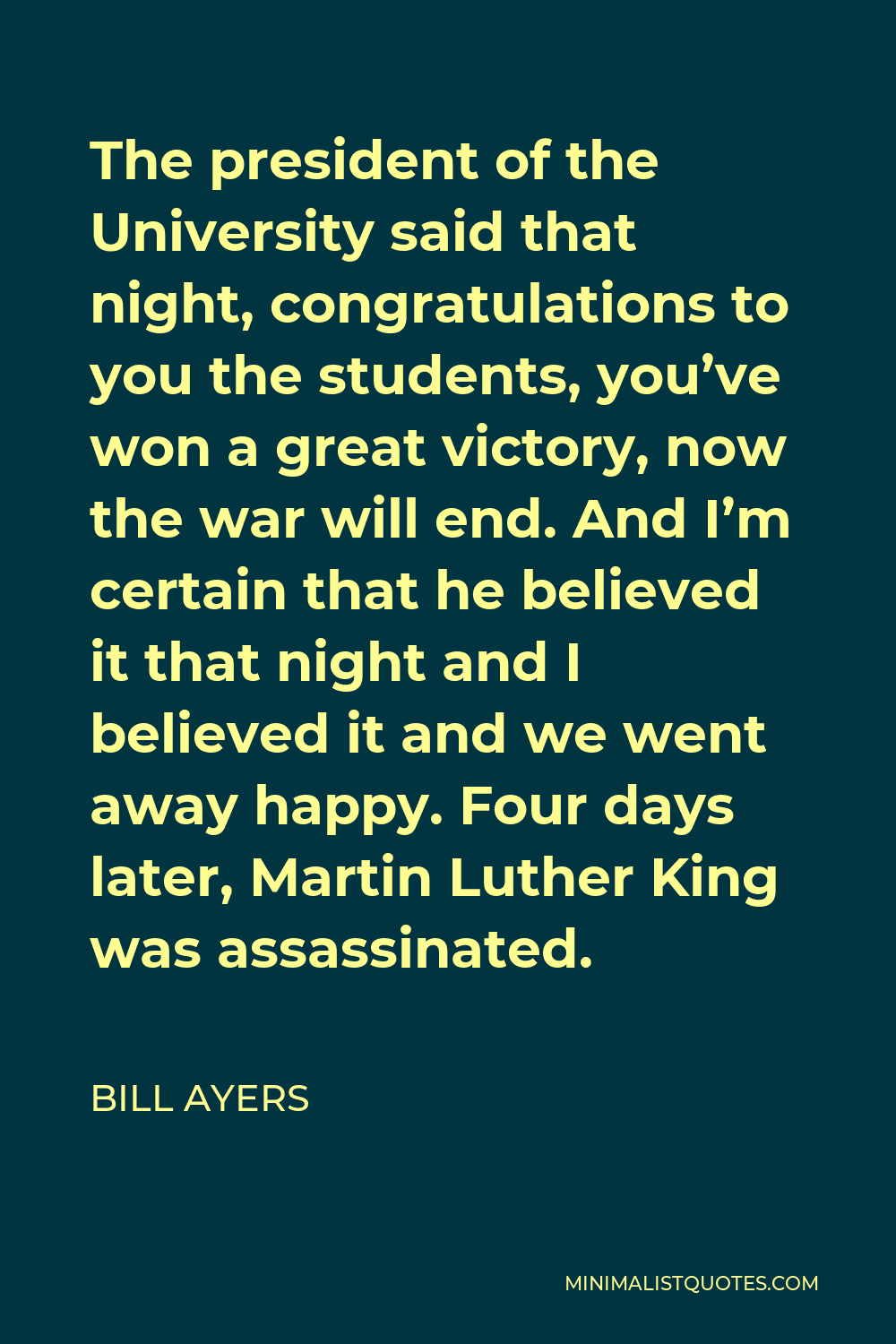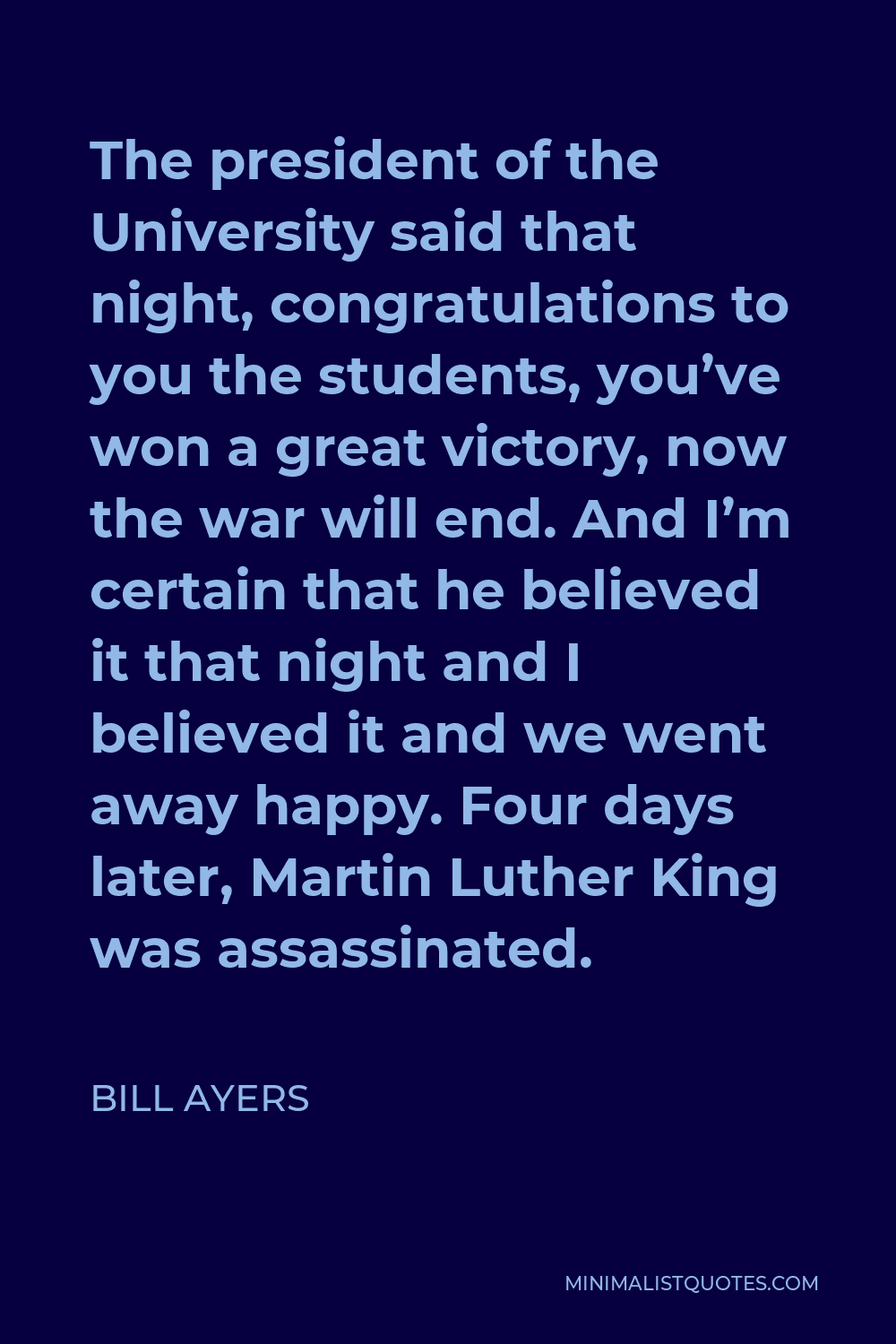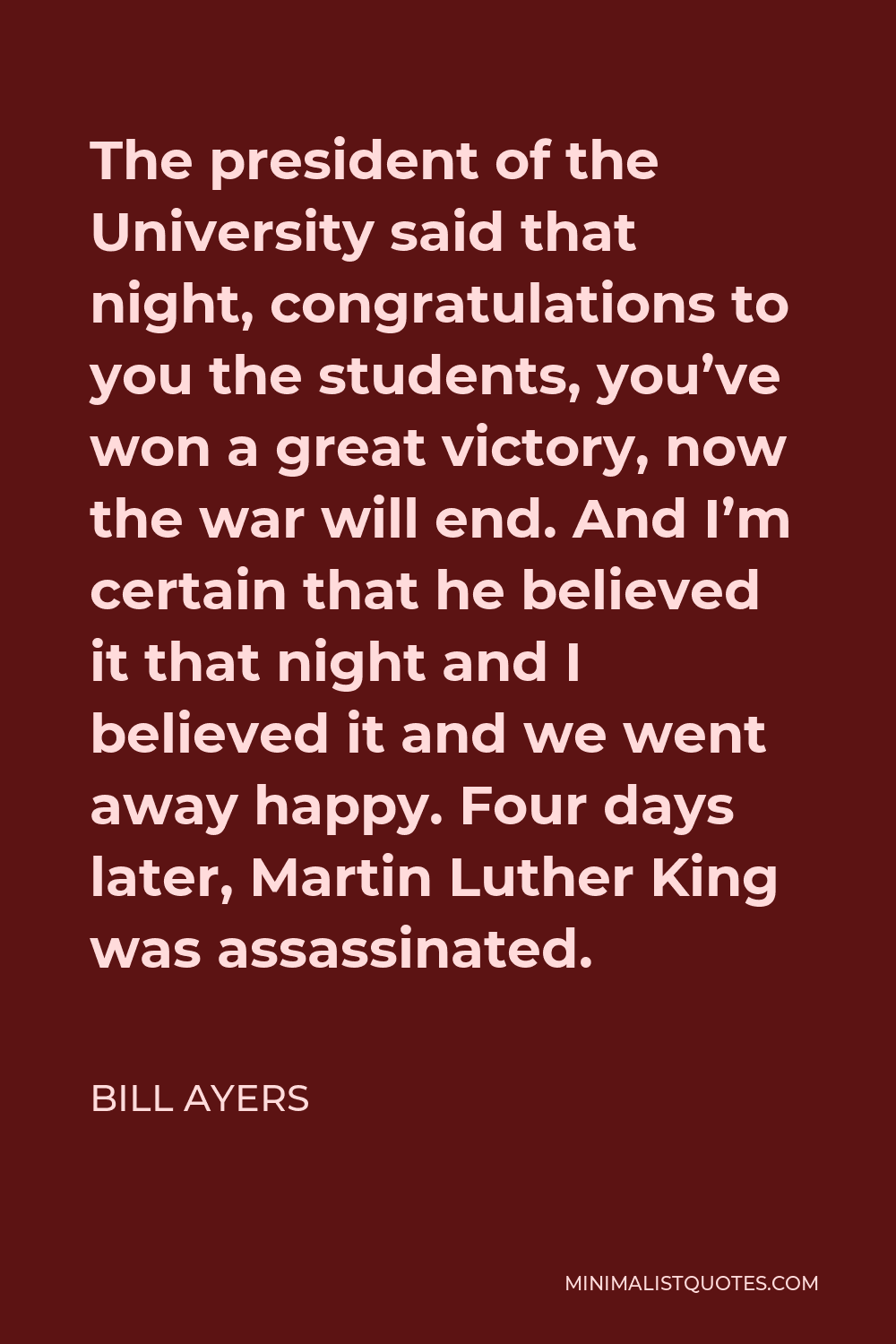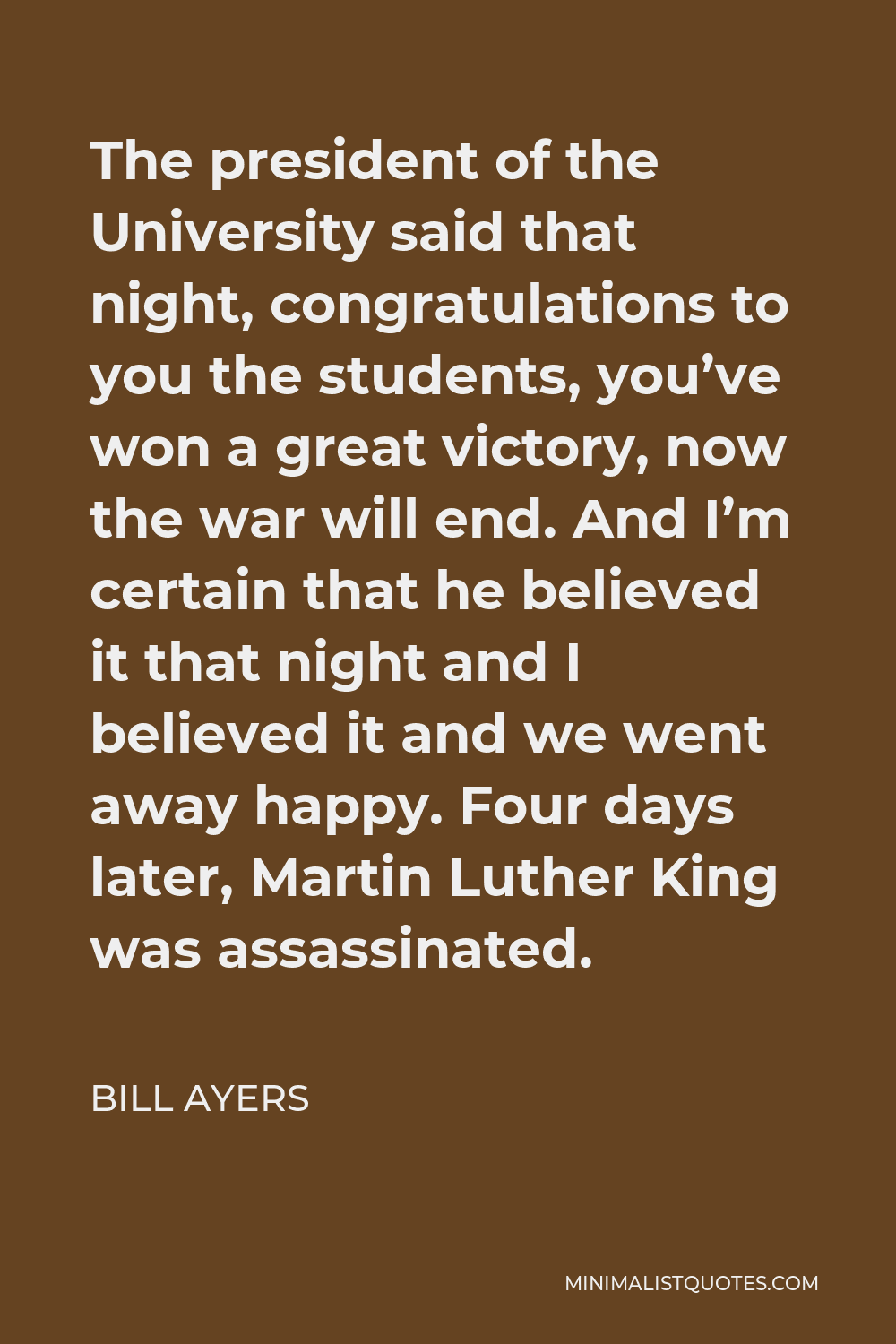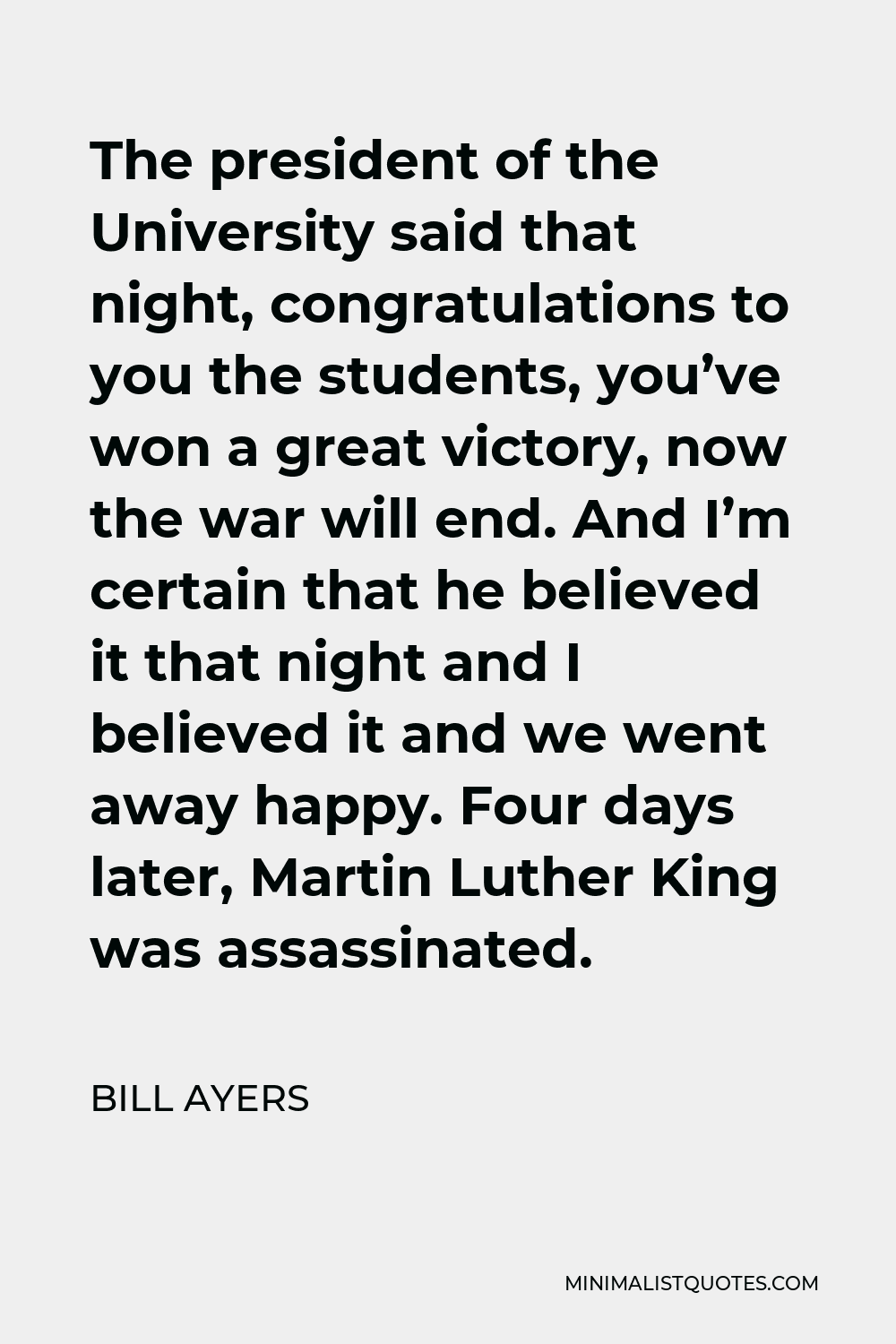When [my dad] was at the University of Michigan, my mom was a social-worker. As he rose, he voted for [Adlai] Stevenson initially. Then he voted for [Dwight] Eisenhower. Then he kept voting Republican until he voted for Barack Obama.
BILL AYERSThe president of the University said that night, congratulations to you the students, you’ve won a great victory, now the war will end. And I’m certain that he believed it that night and I believed it and we went away happy. Four days later, Martin Luther King was assassinated.
More Bill Ayers Quotes
-





![Bill Ayers Quote - When [my dad] was at the University of Michigan, my mom was a social-worker. As he rose, he voted for [Adlai] Stevenson initially. Then he voted for [Dwight] Eisenhower. Then he kept voting Republican until he voted for Barack Obama.](https://minimalistquotes.com/images/when-my-dad-was-at-the-university-of-michigan-my-m.jpg)
-





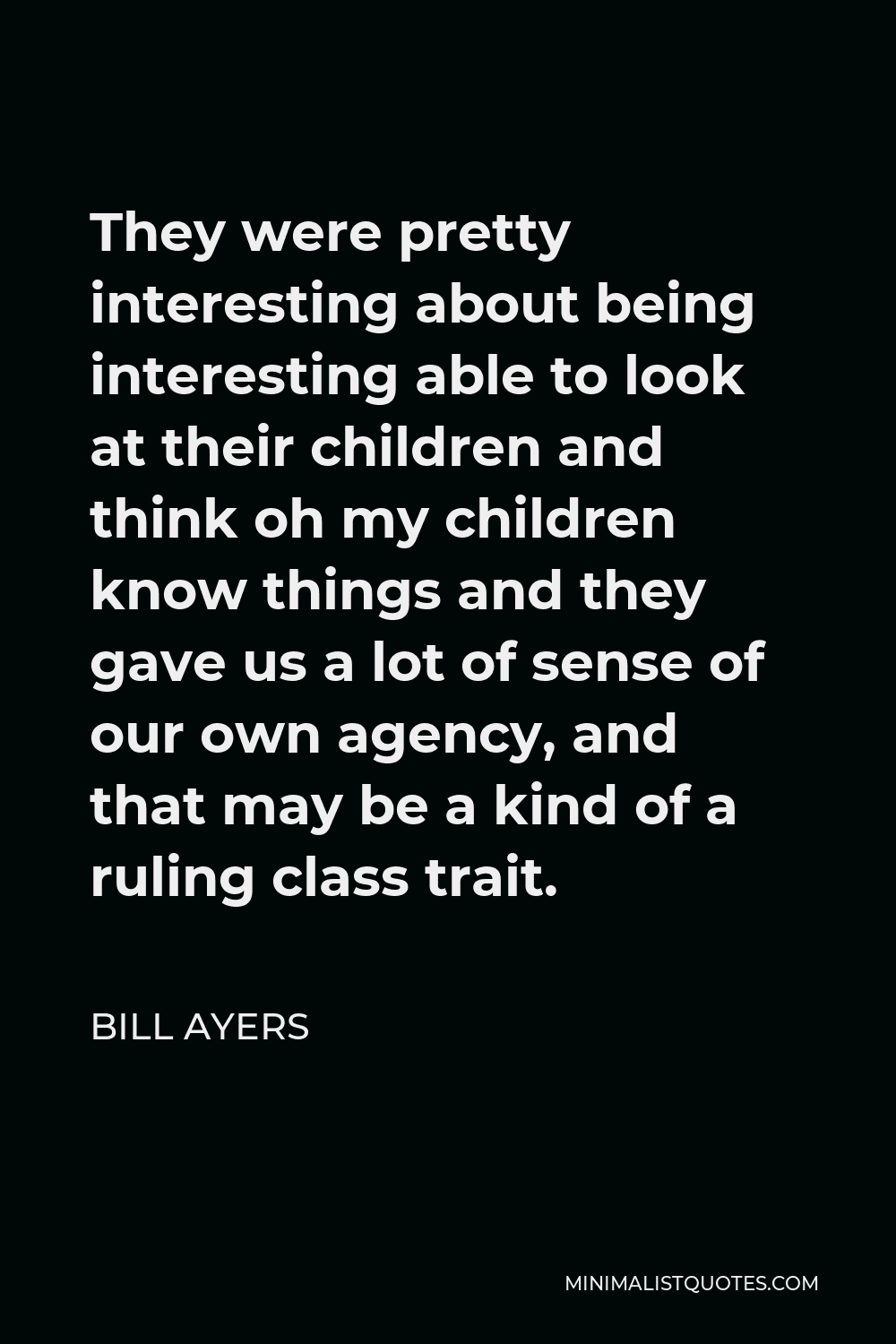
They were pretty interesting about being interesting able to look at their children and think oh my children know things and they gave us a lot of sense of our own agency, and that may be a kind of a ruling class trait.
BILL AYERS -





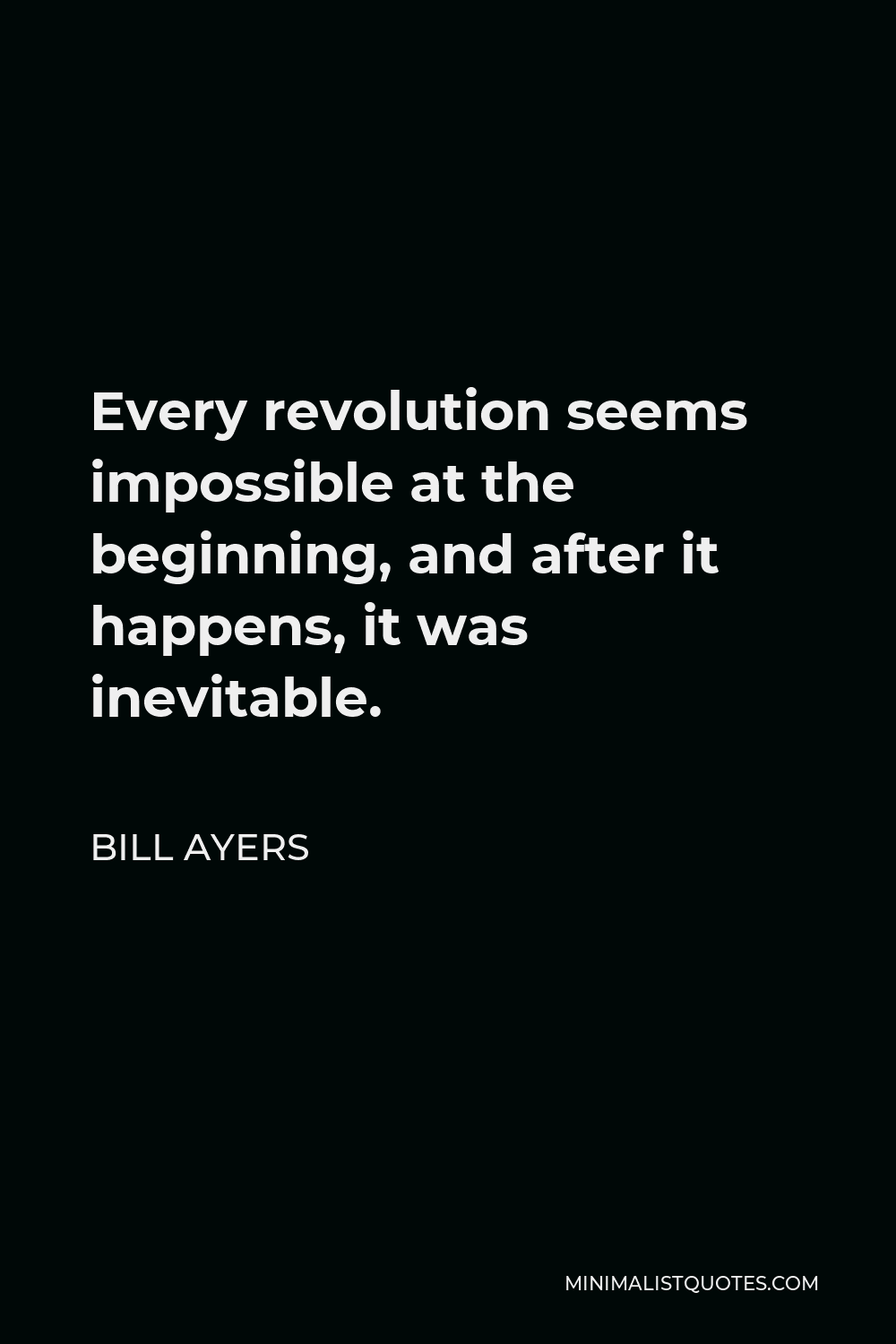
Every revolution seems impossible at the beginning, and after it happens, it was inevitable.
BILL AYERS -





![Bill Ayers Quote - If you listen to the debate, [Barack Obama] and [John] McCain said the same thing about gay rights.](https://minimalistquotes.com/images/if-you-listen-to-the-debate-barack-obama-and-john-.jpg)
If you listen to the debate, [Barack Obama] and [John] McCain said the same thing about gay rights.
BILL AYERS -





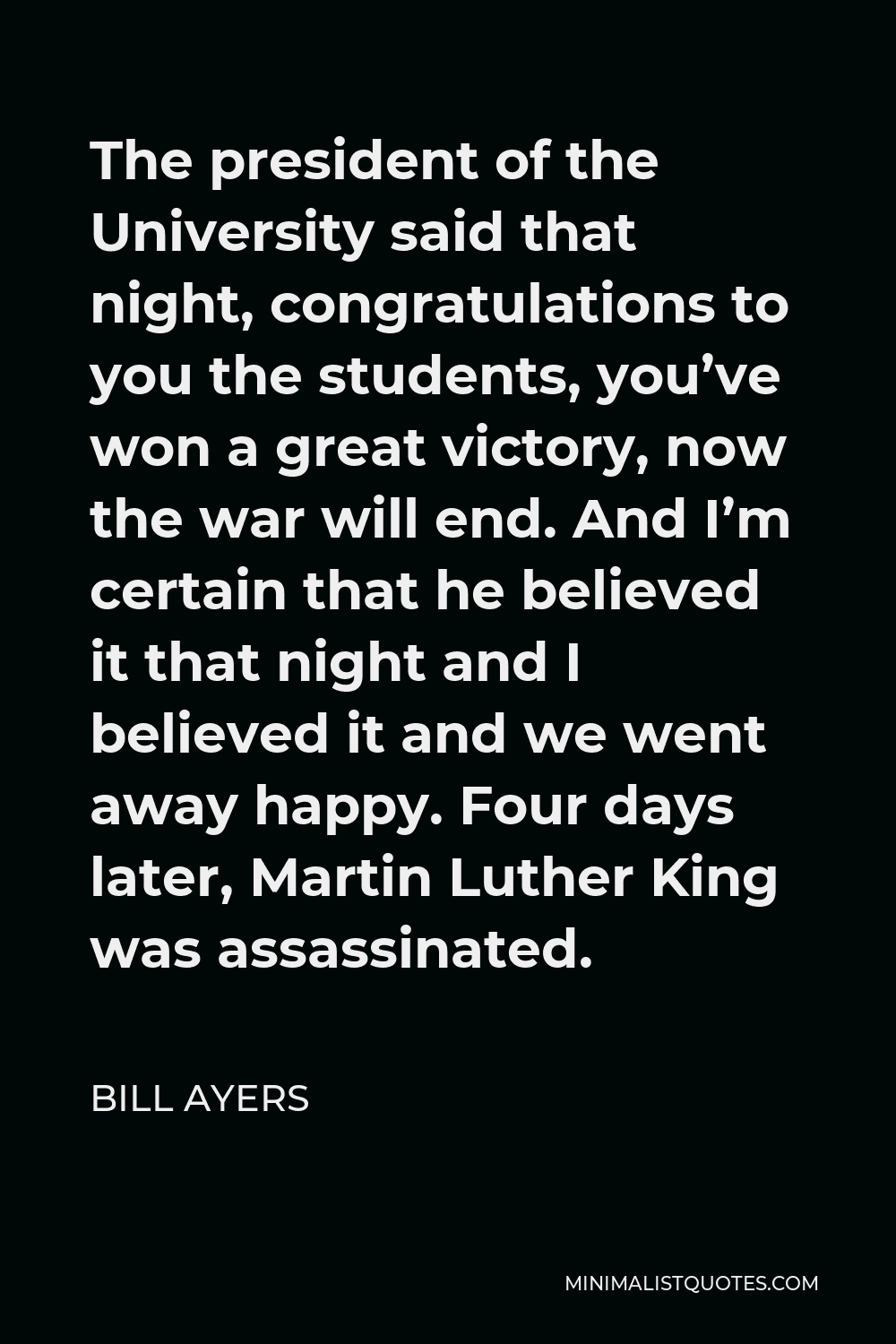
The president of the University said that night, congratulations to you the students, you’ve won a great victory, now the war will end. And I’m certain that he believed it that night and I believed it and we went away happy. Four days later, Martin Luther King was assassinated.
BILL AYERS -





![Bill Ayers Quote - It was the Democratic Party, it was the Presidential election. We elected a president [Barack Obama]; we didn’t elect a king. So all the speculation in the next three months.](https://minimalistquotes.com/images/it-was-the-democratic-party-it-was-the-presidentia.jpg)
It was the Democratic Party, it was the Presidential election. We elected a president [Barack Obama]; we didn’t elect a king. So all the speculation in the next three months.
BILL AYERS -





![Bill Ayers Quote - His [Martin Luther King] last book, Where Do We Go From Here: Chaos or Community, is a direct reference to angles, barbarism or socialism.](https://minimalistquotes.com/images/his-martin-luther-king-last-book-where-do-we-go-fr.jpg)
His [Martin Luther King] last book, Where Do We Go From Here: Chaos or Community, is a direct reference to angles, barbarism or socialism.
BILL AYERS -





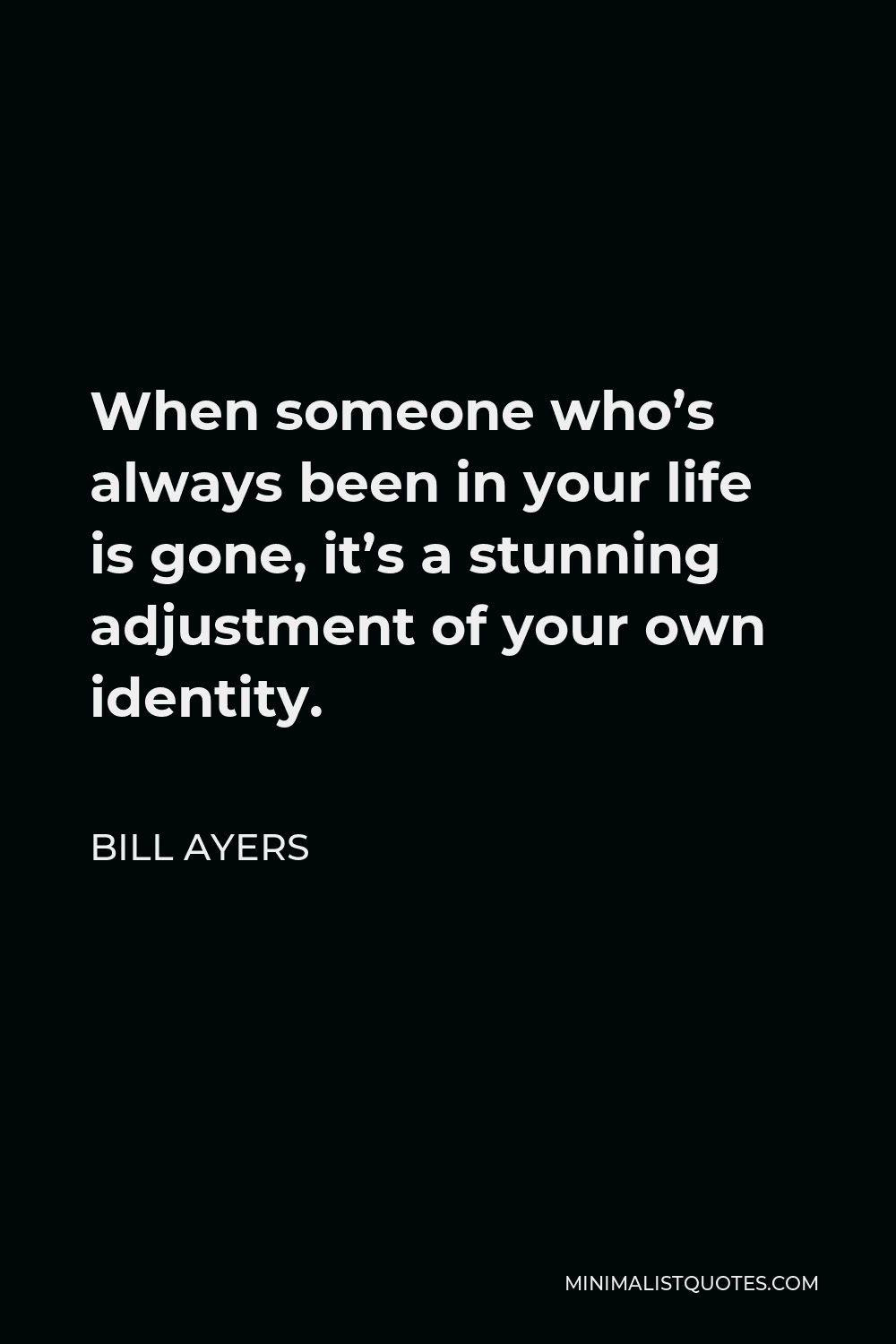
When someone who’s always been in your life is gone, it’s a stunning adjustment of your own identity.
BILL AYERS -





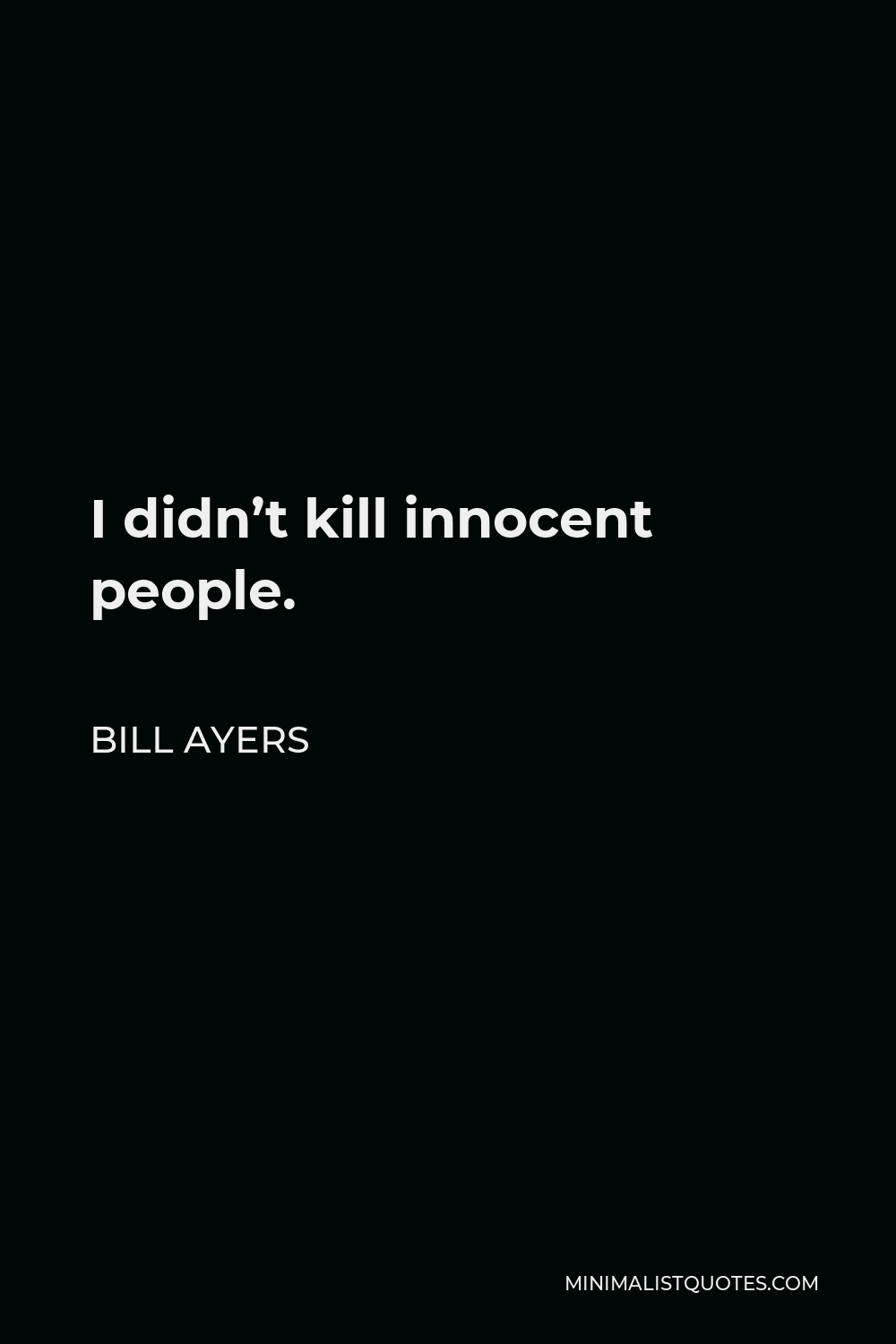
I didn’t kill innocent people.
BILL AYERS -





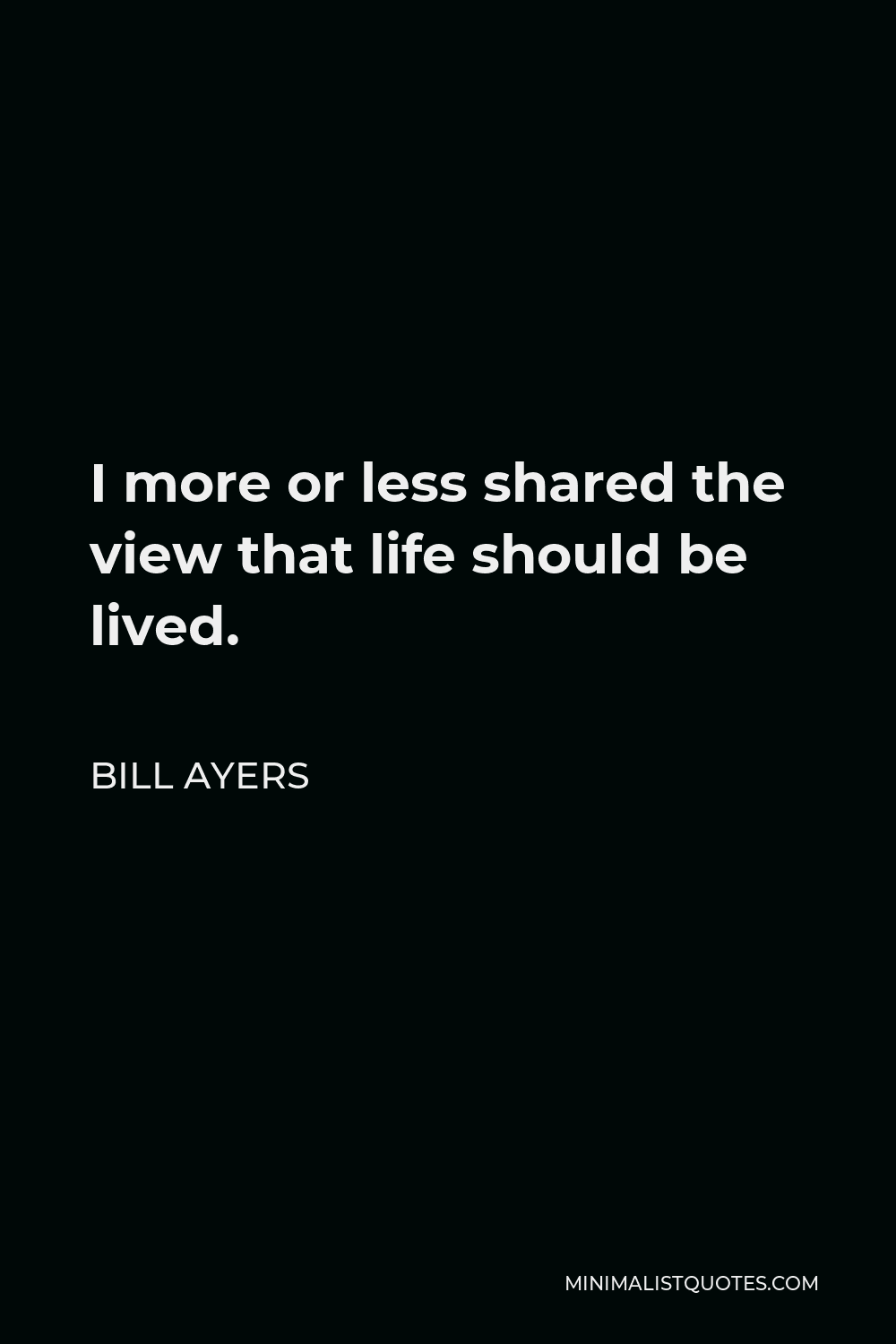
I more or less shared the view that life should be lived.
BILL AYERS -





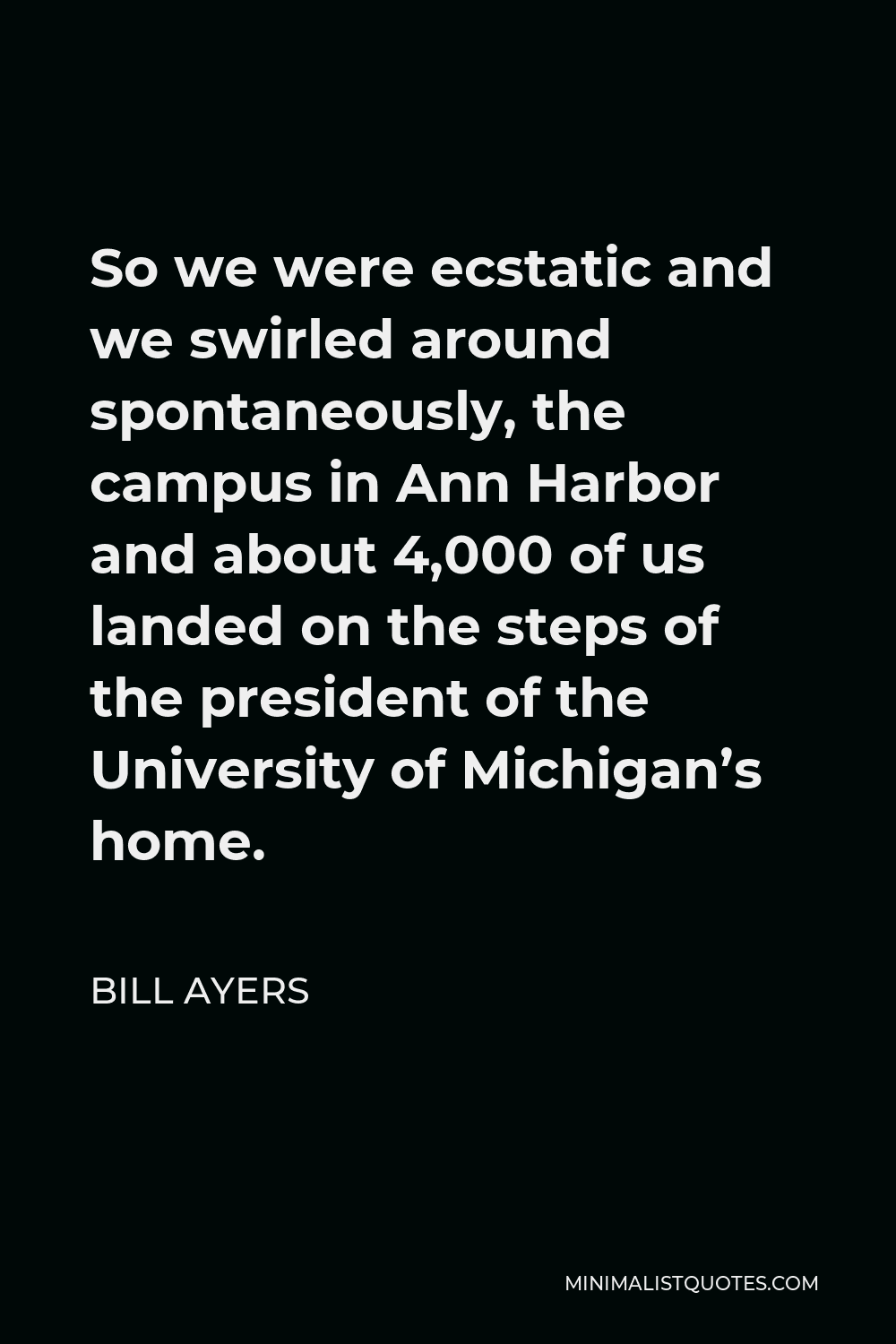
So we were ecstatic and we swirled around spontaneously, the campus in Ann Harbor and about 4,000 of us landed on the steps of the president of the University of Michigan’s home.
BILL AYERS -






The great example, the killer example in history, is of course Abraham Lincoln, the great emancipator. Read his speeches. Read the debates. Wendell Phillips called him “the great slaver from Illinois.”
BILL AYERS -





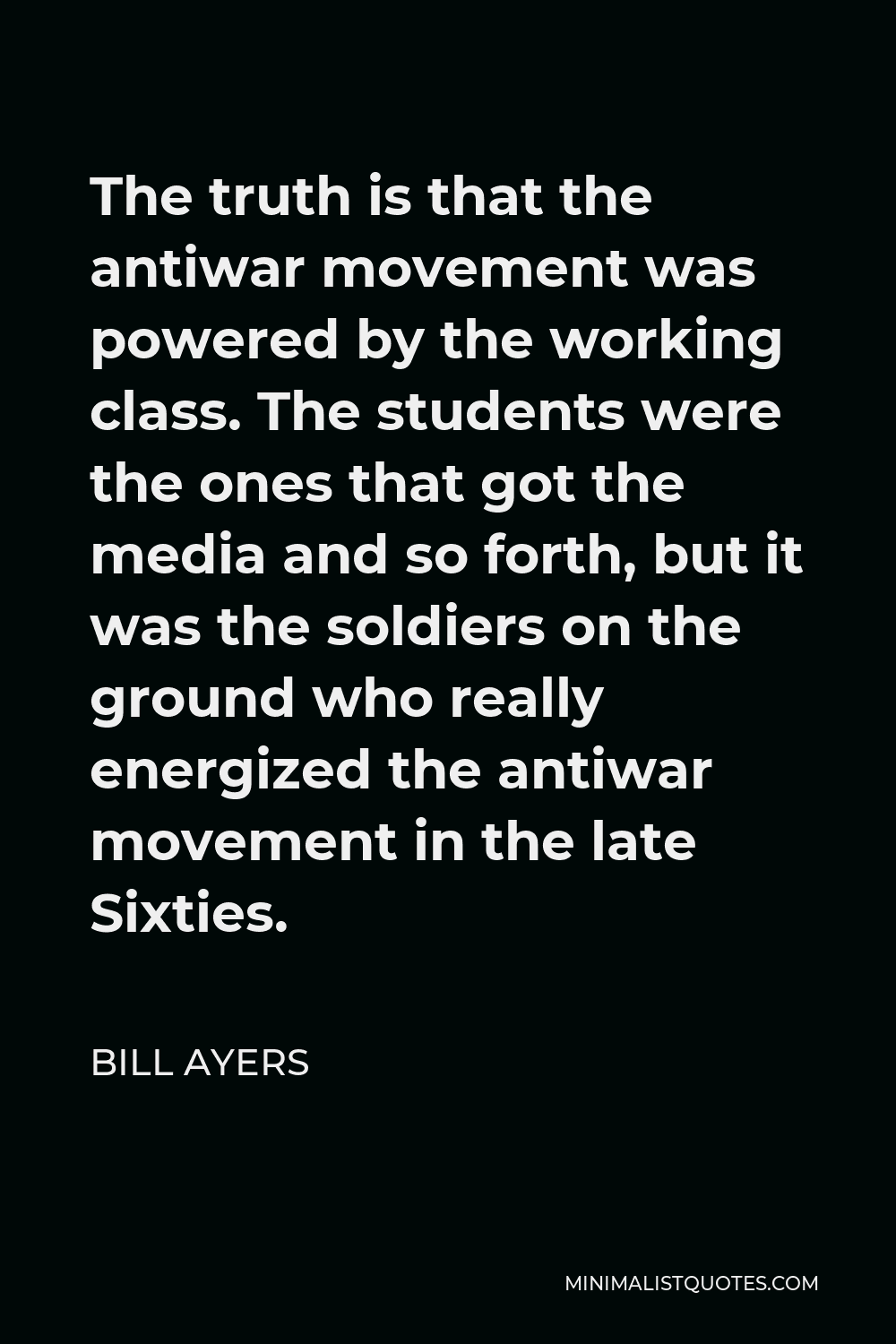
The truth is that the antiwar movement was powered by the working class. The students were the ones that got the media and so forth, but it was the soldiers on the ground who really energized the antiwar movement in the late Sixties.
BILL AYERS -





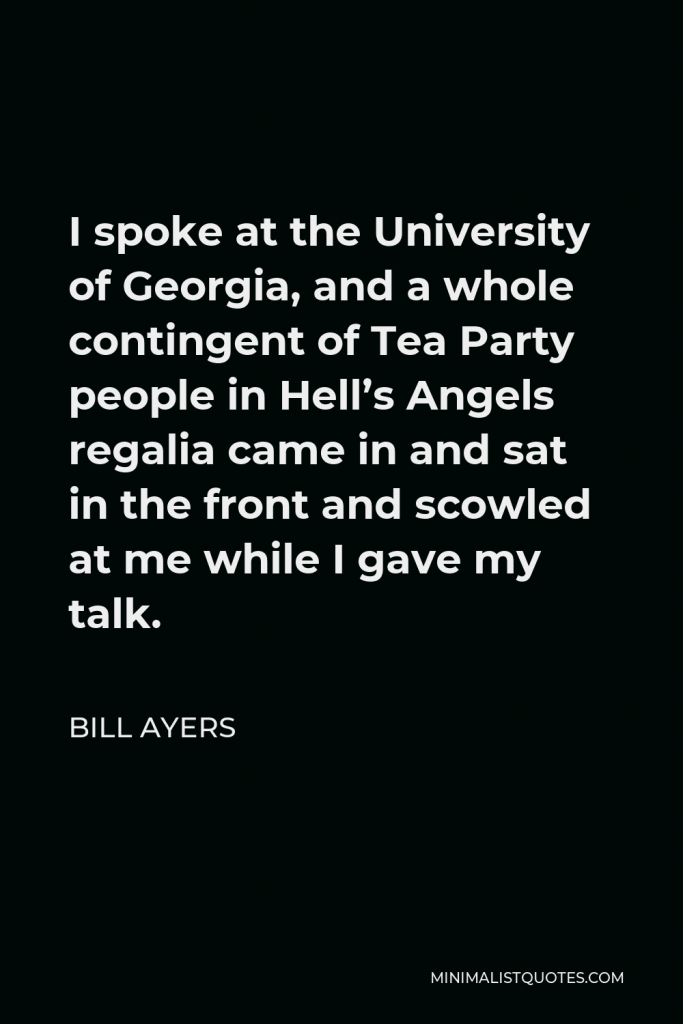

I spoke at the University of Georgia, and a whole contingent of Tea Party people in Hell’s Angels regalia came in and sat in the front and scowled at me while I gave my talk.
BILL AYERS -





![Bill Ayers Quote - That’s what [Abraham] Lincoln said. “The white man will always be above the black man. I don’t want them to run for office, or have political rights, or vote. I want them to go back to Africa.”](https://minimalistquotes.com/wp-content/uploads/2023/02/thats-what-abraham-lincoln-said-the-white-man-will-683x1024.jpg)

That’s what [Abraham] Lincoln said. “The white man will always be above the black man. I don’t want them to run for office, or have political rights, or vote. I want them to go back to Africa.”
BILL AYERS -





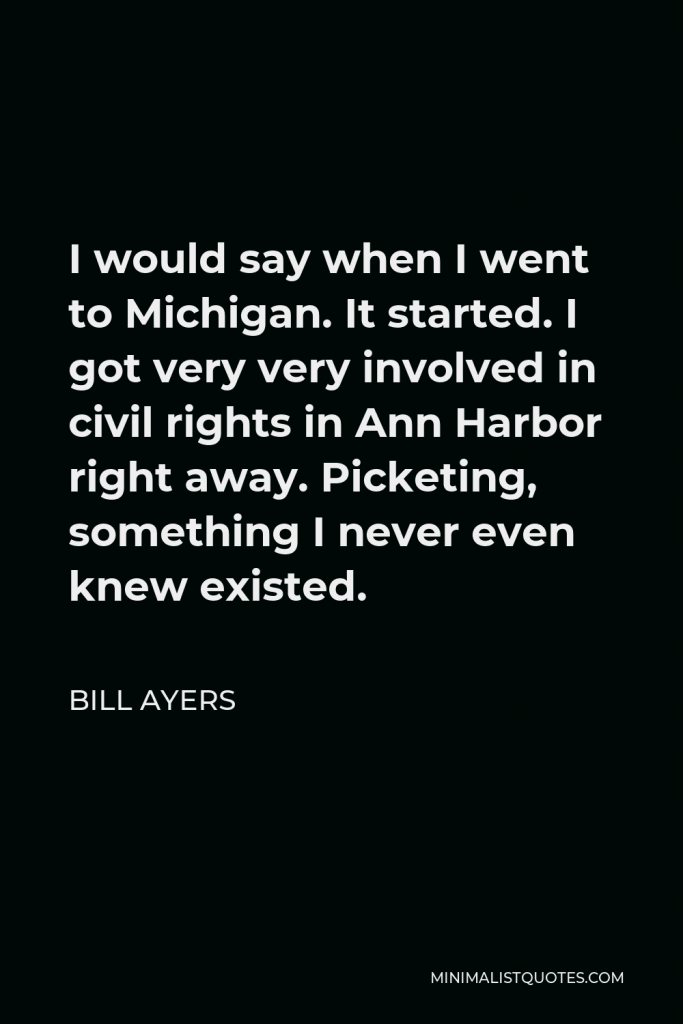

I would say when I went to Michigan. It started. I got very very involved in civil rights in Ann Harbor right away. Picketing, something I never even knew existed.
BILL AYERS
